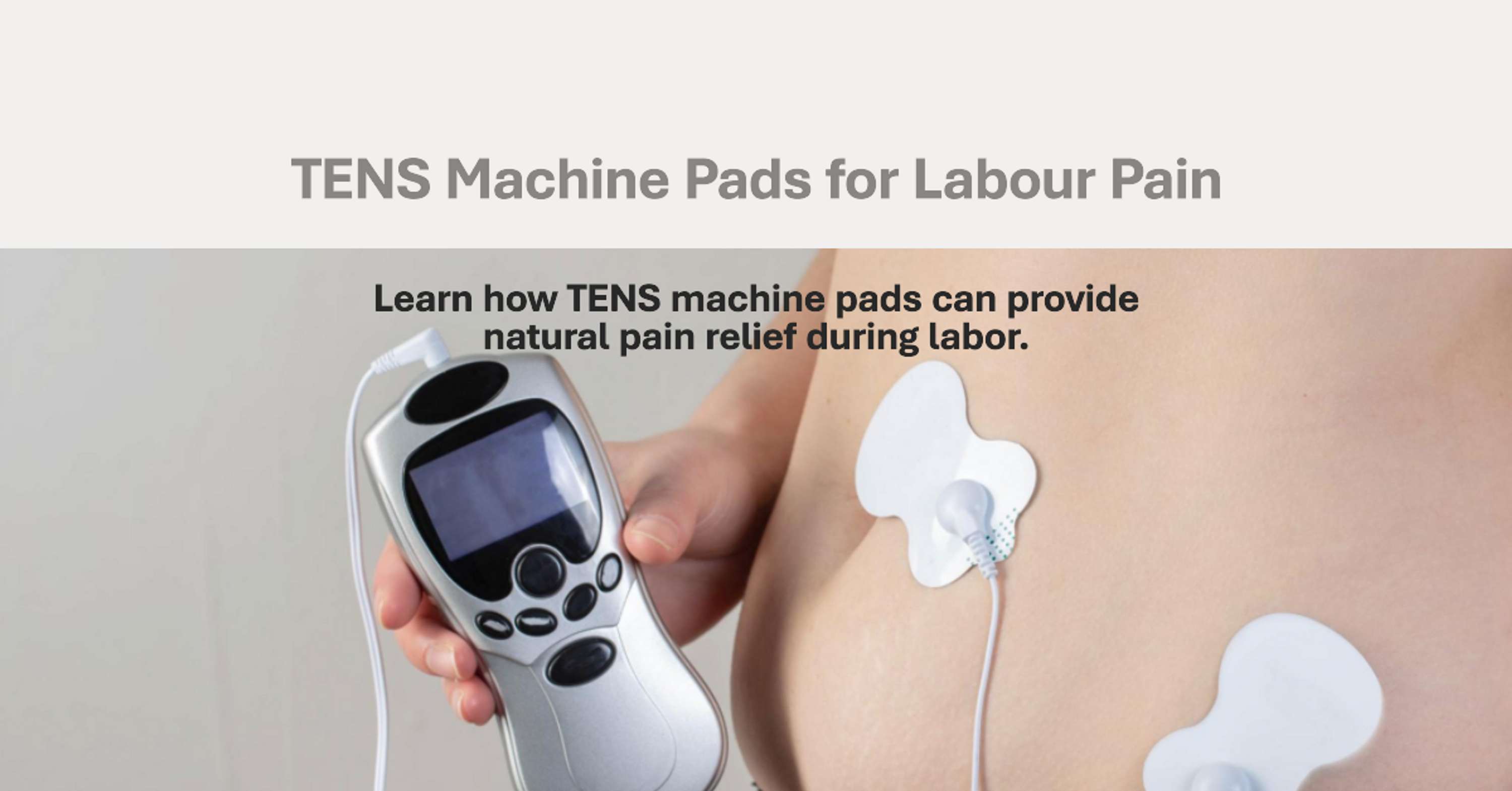
Women go through an amazing and life-changing event when they give birth, but it's no secret that labour can be very painful. Over the years, medical advances have led to the creation of new ways to ease labour pain. The Transcutaneous Electrical Nerve Stimulation (TENS) machine is one example of a new way to ease labour pain. In this piece, we'll talk about how TENS machines can help with labour pain, with a focus on how TENS machine pads work and how well they relieve pain during childbirth.
How a Tens Machine Works and What It Does
A TENS machine is a small, portable device that uses electrodes to send mild electrical shocks to the body. These electrical messages get in the way of pain signals, making the pain feel less intense. TENS therapy have been used a lot in different areas of medicine, such as physical therapy and treating chronic pain. More lately, they have become more popular for treating labour pain.
What are the pads for a TENS machine?
TENS pads, also called electrodes or TENS pads, are an important part of the TENS unit. During labour, these small, sticky pads are carefully placed on the woman's lower back or abdomen. The pads are linked to the TENS machine, which then sends electrical pulses through the skin to target specific nerve pathways and reduce pain.
How Do the Pads on a Tens Machine Work While I'm in Labour?
The "gate control theory" of pain explains how the pads of a TENS machine work. This theory says that the way we feel pain depends on how nerve signals in the spinal cord connect with each other. Electrical shocks from the TENS machine pads turn on nerve fibres that don't send pain signals (called A-beta fibres), which compete with pain signals sent by smaller nerve fibres (called C fibres). Because of this, the gate for pain signals at the level of the spinal cord is partly shut, which makes pain feel less intense.
Pros and Cons of Using Tens Pads During Labour
1. Noninvasive and drug-free: TENS tools offer a way to deal with labour pain that doesn't involve drugs. This is especially helpful for women who don't want to use drugs to ease pain during childbirth.
2. Customizable and adjustable: The settings on TENS machine pads can be changed, so women can control how strong and how often the electrical shocks are based on how they feel.
3. TENS units won't hurt the baby. They are safe for both the mother and the baby. TENS units use gentle electrical currents that do not harm the developing baby.
4. Better Mobility: Unlike some pain relief methods, which can make it hard to move around, TENS machine pads let women stay mobile during labour, which helps the labour go more quickly.
5. Quick and Easy to Use: Putting on the TENS machine pads is a simple, straightforward process that can be done by a medical worker or, with the right instructions, by the labouring woman herself.
TENS Machine Pads in Labour: Proof That They Work
A lot of research has been done to see if TENS machine pads help with labour pain, and the results have been positive. A Cochrane Library study of randomized controlled trials found that TENS can make labour pain less severe and lessen the need for other pain relief methods, like epidurals. Also, TENS hasn't been shown to hurt the process of labour or the health of the baby.
Even though TENS machine pads may not completely take away the feeling of pain during labour, they have helped many women deal with the strength of contractions and feel better.
Conclusion
Childbirth is a highly personal and life-changing experience, and each woman has her own pain tolerance and ways of dealing with pain. TENS machine pads are a safe, non-invasive, and drug-free way to deal with labour pain. This gives women more control over their birthing experience. TENS might not be the best answer for everyone, but it works well and has few side effects, so both expectant mothers and doctors should think about it.
As medical technology keeps getting better, TENS machines and their pads are likely to get even better and more personalized, which will make them even better at making childbirth a more positive and powerful experience. But it's important to talk to a doctor before using TENS tools or any other pain relief methods during labour to make sure both the mother and the baby are safe.
